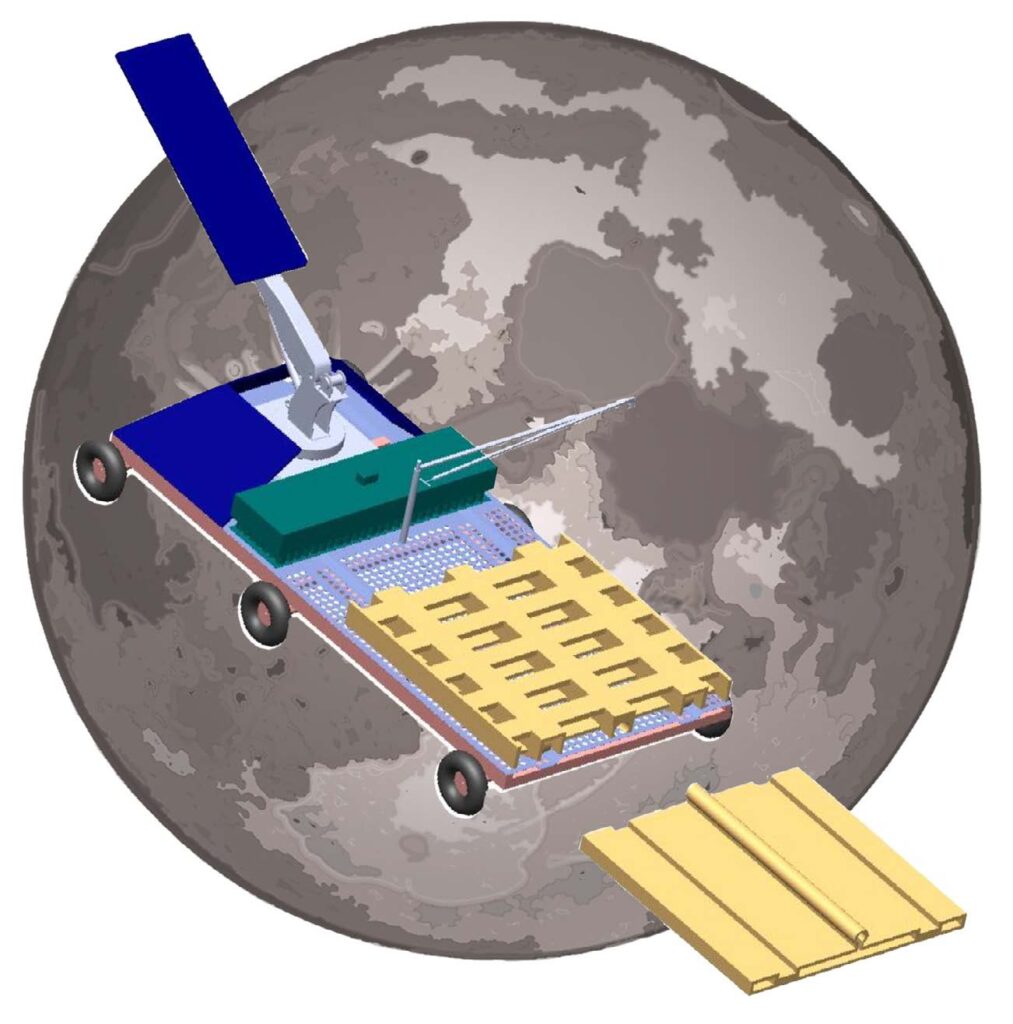By Kyle Lee, Website Editor
Sophomore Kimberly May anxiously stared at the screen as she waited for feedback from her partners. As the deadlines drew nearer, she hoped the dimensions would be perfect this time, and it was. May celebrated with the rest of the Science Research Club as they submitted their NASA Tournament Lab project.
NTL is a crowdsourcing competition which seeks to create solutions to real world problems. The challenge is to design a rover that can efficiently transport cargo across the lunar surface and travel in and out of the spacecraft. Jet Propulsions Laboratory will incorporate the winning design in Project Artemis, which deals with manned lunar missions. SRC participated in multiple prior NTL challenges, submitting this project on Jan. 19.

A computer aided design of the SRC’s lunar rover submission depicts parts such as a robotic arm and a standardized container.
SRC divided the members into departments to work on the lunar project, focusing on individual parts such as structural and electrical components, topology optimization, writing and Computer Aided Design.
“I’m very proud of the members of the club for learning on the fly and solving these difficult challenges,” SRC president and senior Max Bhatti said. “They even teach themselves professional level technical skills!”
The team worked on the project for about a month, checking in once or twice a week for about an hour, with workloads increasing as they approached the deadline. They keep all their ideas in a Google Doc.
Some of the other projects SRC undertook were canceled in light of the pandemic, including the United Launch Alliance competition, Stockholm Water Prize competition and American Academy of Neuroscience Research Prize. However, members report having a greater team morale because they have more time to focus on research and development.
“At some times, it was difficult to have an effective meeting because everyone was tired, but overall, the jokes we shared and sometimes dumb ideas we had gets the group moving,” May said. “In the end, I just think it was really gratifying to have finished the project with my teammates.”
SRC usually participates in three to four projects a semester. They’re currently working on projects for Genes in Space, CERN Beamline for Schools and L.A. County Science and Engineering Fair.
